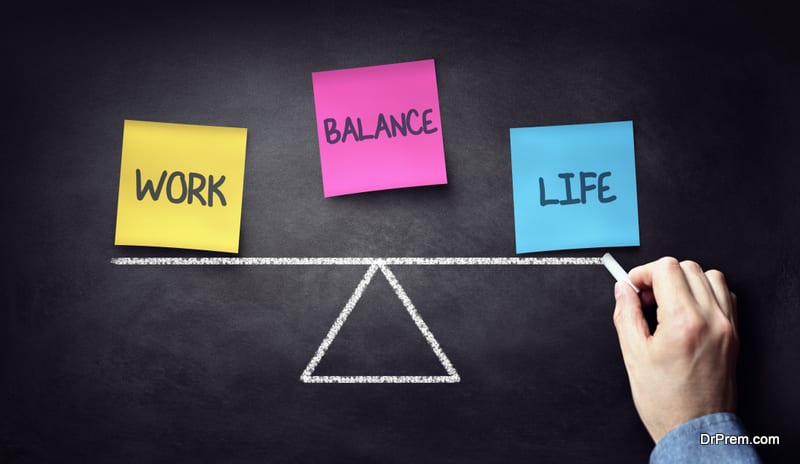In a recent Canadian survey, employers around the country were asked whether or not their organizations were dealing with a variety of issues over the last 12 months, including absenteeism, safety, morale, workload, and work-life balance. The bulk of the employees said that work-life balance and workload were their biggest challenges, and this is something that was reflected when the time came for employees to share their own input, with 76% of all employees saying that their employer was either ineffective or moderately effective when it comes to helping them reach work-life balance. Thinking of trying to just power through? This may lead to major issues later on. Here’s why.
Stress can affect you personally and professionally

In general, some people make the mistake of thinking that they are just dealing with regular stress rather than true burnout due to a lack of work-life balance. Some key signs of this can include not just everyday annoyance, but that compounded with a lack of personal development, poor relationships, and problems at home. In addition, a poor work-life balance can even potentially make you sick—literally. How so? For one thing, stress is tied to our immune system. Being in a situation of chronic stress stemming from problems with work-life balance can lead to people getting sick easier. In many ways, this ends up compounding the problem, by either missing work days due to illness or not being able to work at peak productivity.
Targeting your financial goal
If you are working multiple jobs or putting in a lot of overtime to hit a financial goal, it’s probably a good idea to give some added consideration to what you are making to get there, whether the issues are mainly emotional or spill over into physical fatigue. In some cases, workplaces understand the problem and are trying to make things easier. For example, there is a growing trend towards flexible hours and remote working in order to give skilled workers more control on how they fit their responsibilities into their schedule. Another possibility is folding more self-care practices into the workplace, like having exercise facilities on site.
Keep your work and professional life separate
 However, not every professional has these options, and with this in mind, it’s key to take a more active role in reclaiming your work-life balance. One good thing to do is to try and keep your work responsibilities from spilling over into your time at home. Getting slightly ahead for next week may not be worth bringing home work every weekend, for example. In addition, get in the habit of being ready to say no for added responsibility if you think that you are being overly taxed already. At some point, you’ll see diminishing returns on the quality of your work.
However, not every professional has these options, and with this in mind, it’s key to take a more active role in reclaiming your work-life balance. One good thing to do is to try and keep your work responsibilities from spilling over into your time at home. Getting slightly ahead for next week may not be worth bringing home work every weekend, for example. In addition, get in the habit of being ready to say no for added responsibility if you think that you are being overly taxed already. At some point, you’ll see diminishing returns on the quality of your work.
Take care of your mental health and overall wellbeing
Another thing that you should consider along with building your work-life balance is thinking about ways that you can take care of your mental health while you are at work. Ideally, having a proper work-life balance should minimize on job stress, but every now and then, there’s going to be a moment where you feel overwhelmed. There are ways you can handle this. According to Joyce Marter, a therapist in St. Louis Mo, “Breathe in for 4 seconds, hold your breath for 4 seconds, and breathe out for 4 seconds. Repeat this over and over to calm your mind and body. Put your hands close to your face, and close your eyes. Calmly release your breath and repeat. These exercises are often used to stop panic attacks, but they are effective in depression treatment as well.”
Even if you’re not in the midst of a serious situation like the above, there are other small steps people can take at the workplace to try and improve their mental health. One of the simplest things is just getting up from your desk every now and again, just to break up the rhythm of being at your desk. In addition, when taking on major tasks, understand that it’s not reasonable for you to push your limits for every single job. Manageable goals and prioritizing are ways to keep work from stressing you out if you can help it.
As a final note, it’s important to mention that in some cases, there’s a case where your current job may not be a fit for your goals on work-life balance. The fact of the matter is that certain careers are just more demanding in terms of your time and energy than others. While this doesn’t mean people in established certain careers should instantly toss away what they’ve worked to build. However, if you feel your career ambitions having a negative impact on your mental health,
Article Submitted By Community Writer




